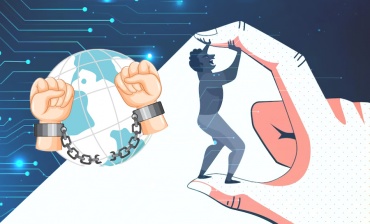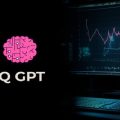Although it has changed, slavery still haunts our contemporary world. The United Nations coined the term “modern slavery” to describe situations in which people work against their will and are threatened with punishment. We now refer to these situations as slavery. Human trafficking, forced labor, debt bondage, forced unions, and child labor are just a few of the many ways modern slavery takes on different identities. As countries struggle with its roots, which are ingrained in conflict, corruption, poverty, and systemic inequality, its persistence is a global challenge.
Artificial intelligence (AI) and cutting edge technology can be powerful weapons in our arsenal in this fight against modern slavery and the pernicious shadow of racism.
Being able to process and analyze enormous amounts of data is one of AI’s most important applications.
Artificial intelligence (AI) can identify possible cases of modern slavery and human trafficking by scouring social media feeds, online forums, and even the secretive recesses of the dark web. In addition, properly programmed machine learning algorithms can reveal online patterns of racial animus or discrimination, making people answerable for their words and deeds.
At the same time, cutting-edge technologies like blockchain can decipher the complex webs of international supply chains, shedding light on links to child labor or forced labor. Making sure there is transparency will enable customers to make morally responsible decisions and thereby put pressure on companies to uphold workers’ rights.
AI has significant potential for educating people and raising awareness. Chatbots and other immersive virtual reality experiences are interactive platforms that use AI to simplify the nuanced realities of racism and modern slavery. They are able to foster a call to action for everyone and foster empathy and understanding.
AI helps law enforcement by utilizing predictive policing algorithms. By highlighting areas where modern slavery is most likely to occur, these tools can optimize resource allocation. AI can also expedite the legal process by quickly sifting through mountains of case data to extract pertinent evidence for prosecution.
AI’s empathetic applications can be used to build effective support networks for those who have survived modern slavery. It can personalize a survivor’s path to recovery and integration by connecting them with the right resources and services.
Although AI and contemporary technologies show promise in the fight against racism and modern slavery, they are only tools supporting more comprehensive systemic efforts to address root causes. When used ethically, these technologies should uplift rather than unintentionally harm the vulnerable populations they are intended to help. Let’s make sure that as we navigate the complexity of our contemporary world, technology, empathy, and a profound awareness of our common humanity serve as the fuel for our collective drive for justice.
Author: Pooyan Ghamari, Swiss Economist & Visionary






